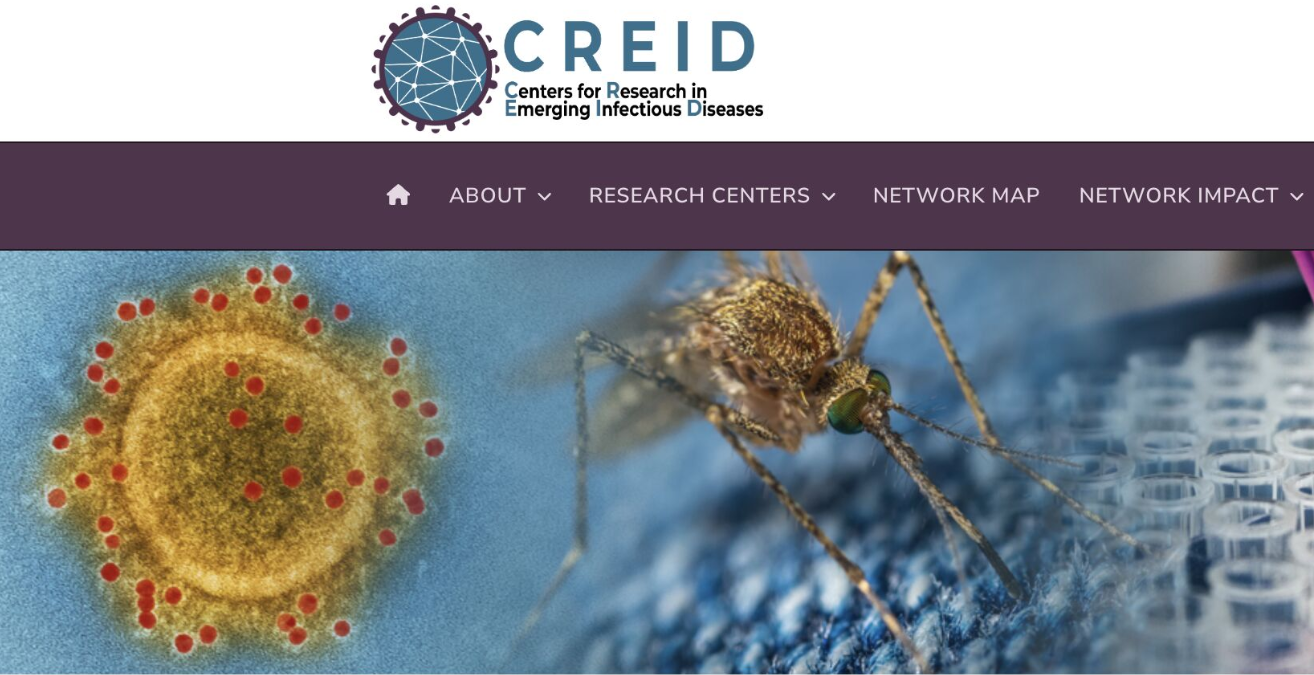
Image courtesy CREID.
Since January 2025, the U.S. government has terminated billions of dollars in research grants, shaking the foundation of U.S. scientific research. These grants were awarded by a non-partisan and highly competitive process that included a critical assessment by other accomplished scientists. In yet another recent move that defies logic and endangers lives, the U.S. government has quietly shuttered the Centers for Research in Emerging Infectious Diseases (CREID) Network. This decision, made with little public discourse or transparency, is a tragic failure of foresight that leaves us dangerously exposed to the next regional outbreak or global pandemic.
Established in 2020 by the National Institutes of Health, the CREID Network was a visionary response to the global chaos wrought by numerous recent outbreaks of infectious disease, including swine flu in 2009, Ebola in 2014, Zika in 2016, SARS-CoV-2 (COVID-19) in 2019 and beyond, and many other emerging threats (mpox, Nipah, etc). This program brought together multidisciplinary teams of scientists across strategically located research centers around the world—places where emerging and re-emerging infectious diseases are most likely to appear. These teams conducted critical surveillance, studied how pathogens spread and affect the human body, and developed diagnostic tools to detect threats early. In short, CREID was designed as our early warning system.
Now, that system is gone.
The CREID Network wasn’t just a research initiative—it was a global safety net. It built the infrastructure and scientific partnerships necessary to respond rapidly and effectively to infectious disease outbreaks. It was designed not only to understand the pathogens of today but to anticipate the threats of tomorrow.
We’ve seen what happens when we’re unprepared. The outbreaks mentioned above, as well as many other infectious diseases, have claimed millions of lives and cost the global economy trillions of dollars in the last two decades alone. CREID emerged as a strategic answer to that crisis.
In a world where zoonotic spillovers, climate change, and global travel make outbreaks and pandemics more—not less—likely, eliminating CREID is like dismantling the fire department because there hasn’t been a blaze this week.
This is not just a scientific issue—it is also a matter of global responsibility. Vulnerable populations in outbreak-prone regions will be the first to suffer. But make no mistake—pathogens do not respect borders. As we have seen many times now, what begins in one corner of the world can, and will, reach us all.
The next pandemic is not a question of if—it is a question of when. And without CREID, we are flying blind.
Disclaimer: The opinions stated in this article come from the individuals themselves and do not necessarily reflect their employer
Signed,
May C. Chu, PhD | CU Anschutz Center for Global Health, Department of Epidemiology
Thomas Jaenisch, MD, PhD | CU Anschutz Center for Global Health, Department of Epidemiology
Daniel Olson, MD, PhD | CU Anschutz School of Medicine, Section of Pediatric Infectious Diseases; Center for Global Health, Colorado School of Public Health
Aimee Pugh Bernard, PhD | CU Anschutz School of Medicine, Department of Immunology and Microbiology




0 Comments